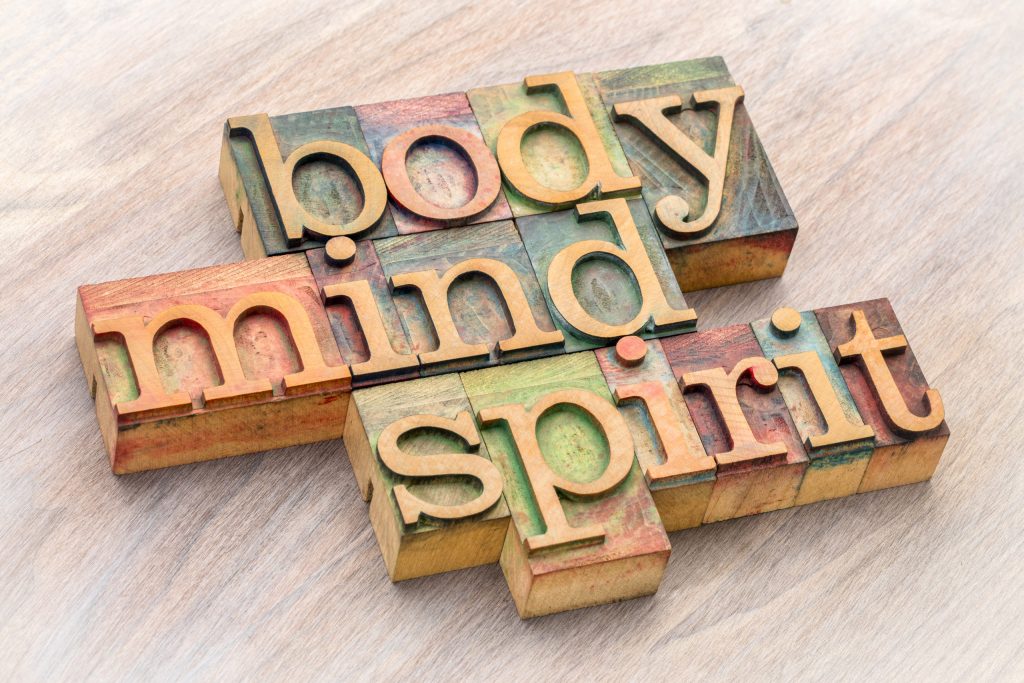Table of Contents
Nootropics have gained popularity in recent years and there’s been a ton of nootropics holistic research lately. Many people use them to boost brain power and improve cognitive function. Whether it’s memory, focus, or mental clarity, nootropics promise significant benefits.
Among the natural options, nicotine has emerged as a key player for its cognitive-enhancing properties. However, it’s essential to understand how they work and their effects on the brain and body. Holistic research takes a comprehensive approach, looking not just at the brain but also at how nootropics, including nicotine, impact overall health, emotions, and the body’s natural systems.
In this article, we’ll explore nootropics, what holistic research says about them, and their benefits and risks. We’ll look at both natural and synthetic nootropics and how they interact with the body.
By the end, you’ll have a better understanding of how to use nootropics, including nicotine, effectively and safely.
A Quick Overview of Nootropics
Nootropics are substances designed to enhance cognitive function. The term “nootropic” comes from the Greek words “nous” (mind) and “tropos” (turn). These substances are often referred to as “smart drugs” or “brain boosters.”
Nootropics can improve memory, focus, creativity, and even mood. Nootropics help the brain work better, improving performance in different tasks. Some nootropics are natural, coming from plants or herbs. Others are synthetic and made in labs. They affect brain functions like neurotransmitter activity, blood flow, and inflammation.
People use nootropics to boost mental performance, whether for studying, work, personal growth, or fighting cognitive decline. They are also popular for improving overall brain health.
The Holistic Research Approach

Holistic research examines the whole system, considering all factors that might influence health. Holistic research looks at how the brain, body, and emotions work together. When studying nootropics, the focus is on how these substances affect mental health. It also looks at the impact on physical health. Additionally, it examines their influence on emotional well-being.
This type of research is important because nootropics don’t only affect the brain. They can also impact other parts of the body. They can influence hormones, metabolism, digestion, and even the heart.
By understanding these effects, we can make smarter choices about using nootropics.
Why Holistic Research Is Important for Nootropics
Most nootropic research looks at short-term effects, like memory, focus, and alertness. But this doesn’t consider overall health. Holistic research studies how nootropics affect the body and mind over time. It looks at more than just cognitive benefits. It also examines emotional health, sleep, and physical health.
This approach helps us understand the long-term effects of nootropics. It helps us find potential risks that might not show up in short-term studies. This gives us a fuller picture of how nootropics affect the body and mind in the long run.
Understanding Potential Side Effects
Holistic research is important for nootropics. These substances can have side effects that aren’t clear right away. Some nootropics, especially synthetic ones, can disrupt the body’s systems. These effects might take time to show. This makes them hard to notice without long-term studies.
For instance, some nootropics may impact hormonal balance, digestion, or even heart rate. While nootropics may seem safe at first, long-term use can cause issues.
These might include digestive problems, mood swings, or heart concerns. Holistic research helps find these risks. It allows users to make informed choices about whether to keep using nootropics.
Long-Term Health Considerations
Holistic research looks at both cognitive performance and long-term health when using nootropics. Some nootropics may improve focus in the short term but cause problems over time. For example, caffeine helps with focus, but long-term use can lead to sleep issues and dependence.
This research studies how nootropics affect the body over time. The brain and body are connected, so a change in one area can affect others. By studying nootropics in this way, we can understand how they impact cognitive function and overall health.
Personalized Usage
Not everyone reacts to nootropics the same way. Holistic research looks at genetics, lifestyle, and health to understand how nootropics work for each person. This helps create a more personalized approach.
Some people may benefit a lot from nootropics, while others may feel little or have side effects. Knowing these differences is important for safe use. Holistic research helps find the right nootropics and the best dose for each person.
Holistic Research and Informed Decision-Making
Holistic research helps people make better choices about using nootropics. Instead of relying on marketing or short studies, people can make decisions based on a clear understanding of the risks and benefits.
Holistic research promotes safety by suggesting practices like cycling nootropics or adjusting doses. This helps avoid tolerance and dependence. It also shows that nootropics affect health in many ways, not just short-term mental performance.
Holistic Research on Natural Nootropics

Caffeine
Caffeine is the most commonly used natural nootropic. It is found in coffee, tea, and energy drinks. Caffeine boosts alertness and increases energy levels by stimulating the central nervous system. Holistic research shows that caffeine can improve focus and reduce fatigue, but it also has drawbacks.
Benefits of Caffeine
- Boosts Focus: Caffeine helps improve concentration and alertness.
- Increases Energy: It’s well-known for fighting fatigue and providing a burst of energy.
- Improves Physical Performance: Caffeine enhances endurance and physical performance in athletes.
Risks and Side Effects
- Insomnia: Consuming caffeine too late in the day can interfere with sleep.
- Dependence: Over time, your body can build tolerance, and you may need more to achieve the same effects.
- Jitters: High doses can lead to anxiety and restlessness.
Ginkgo Biloba
Ginkgo biloba is one of the oldest natural remedies for cognitive health. It’s believed to improve circulation and protect the brain from oxidative damage. Holistic research on ginkgo shows that it may help with memory and mental clarity, especially in older adults.
Benefits of Ginkgo Biloba
- Improves Memory: It can enhance memory and cognitive function.
- Supports Brain Health: Ginkgo promotes blood flow to the brain, helping keep it healthy.
- Reduces Anxiety: It has mild calming effects that may help reduce stress.
Nicotine
Nicotine is a naturally occurring stimulant found in tobacco plants. It interacts with the brain to increase alertness and focus while also having a calming effect for some individuals. Nicotine is widely known for its role in smoking, but in controlled amounts, it is being researched for potential cognitive benefits. See research here.
Benefits of Nicotine
- Enhances Focus: Nicotine stimulates the release of neurotransmitters like dopamine, improving attention and concentration.
- Boosts Cognitive Function: Studies suggest it may support memory and learning in certain individuals.
- Mood Regulation: Nicotine can provide a temporary sense of calm or stress relief for some users.
Risks and Side Effects
- Highly Addictive: Nicotine can lead to dependence, making it hard to stop using once started.
- Negative Health Impacts: Prolonged use, especially through smoking, is linked to numerous health risks, including heart disease and lung issues.
- Side Effects: May include nausea, dizziness, or increased heart rate, particularly for new users or in high doses.
- Digestive Issues: Some users experience nausea or upset stomach.
- Blood Thinning: It can interact with blood-thinning medications, increasing the risk of bleeding.
L-Theanine
L-theanine is an amino acid found in green tea. It promotes relaxation without making you sleepy. When combined with caffeine, it helps balance the stimulating effects and reduces jitteriness. Holistic research shows that L-theanine may have calming effects while also enhancing focus.
Benefits of L-Theanine
- Reduces Stress: L-theanine has a calming effect that helps relieve anxiety.
- Enhances Focus: It can improve attention when taken with caffeine.
- Promotes Relaxation: Helps you relax without feeling drowsy.
Risks and Side Effects
- Few Side Effects: L-theanine is generally safe, but some people may experience headaches or dizziness.
Holistic Research on Synthetic Nootropics

Racetams
Racetams are a group of synthetic nootropics. They are known for enhancing memory and learning. Holistic research on racetams is ongoing, and some studies suggest that they can increase brain plasticity and neuroprotection.
Benefits of Racetams
- Enhances Memory: They help improve memory recall and learning.
- Improves Mental Clarity: Racetams increase focus and mental sharpness.
- May Protect the Brain: Some studies suggest racetams have neuroprotective properties.
Risks and Side Effects
- Headaches: Many users report headaches as a common side effect.
- Irritability: Racetams can cause mood changes, including increased irritability.
- Digestive Issues: Some users experience stomach discomfort.
Noopept
Noopept is a powerful synthetic nootropic that enhances memory, learning, and mental clarity. It is often considered more potent than racetams. Holistic research on noopept focuses on its cognitive benefits and neuroprotective effects.
Benefits of Noopept
- Improves Memory: Enhances short-term and long-term memory.
- Enhances Learning: Helps with learning speed and retention.
- May Support Neurogenesis: Noopept has been linked to brain cell growth.
Risks and Side Effects
- Jitters and Anxiety: Some users report feeling anxious or jittery.
- Headaches: Headaches are a common side effect.
- Sleep Disturbances: Taking Noopept late in the day can affect sleep patterns.
The Body and Brain Connection: How Nootropics Affect Both

Brain and Cognitive Function
Nootropics work by influencing brain chemistry. They target neurotransmitters, like dopamine, serotonin, and acetylcholine. Holistic research shows that these substances can improve brain performance. They also change the body’s natural balance.
Overuse can lead to negative effects like anxiety, mood swings, or cognitive impairment.
The Role of the Body
Nootropics also impact the body. For example, caffeine stimulates the heart and increases blood pressure. Ginkgo biloba enhances blood flow, while L-theanine promotes relaxation. Holistic research looks at how these changes affect the body’s overall health. The brain and body are interconnected, so the effects on one can influence the other.
Social Effects
Nootropics can also influence social behavior. For example, L-theanine can reduce stress, while racetams may cause irritability. Holistic research examines how nootropics affect behavior. This research is important to understand all the effects of nootropics, not just on thinking.
Nootropics in Different Industries

Students and Academics
Students often turn to nootropics during exams or tight deadlines. Substances like caffeine, L-theanine, and natural nicotine are particularly popular. Nicotine lozenges, for example, offer a clean mental edge, helping students stay focused during long study sessions. Unlike synthetic options, nicotine works subtly to enhance learning and reduce mental fatigue without overwhelming side effects, making it ideal for high-pressure academic situations.
During stressful times, like exams or tight deadlines, nootropics can help students stay engaged and sharp. They make it easier to keep concentration, even when the workload is heavy. Nootropics also support learning by helping students understand difficult topics more easily. With their help, students can tackle complex subjects with better clarity and memory retention.
Entrepreneurs and Professionals
Entrepreneurs and professionals face demanding schedules, and natural nicotine is a rising choice among them. Nicotine lozenges can improve decision-making, focus, and creativity during long work hours. When paired with other natural nootropics, nicotine helps maintain mental sharpness, making it easier to tackle high-pressure tasks and stay productive throughout the day.
Professionals often feel pressure to stay productive and handle many tasks. To stay at their best, they use nootropics. These help with staying alert during long meetings or boosting creativity for new ideas. Nootropics help maintain mental performance. They keep professionals focused and clear-headed, even in high-stress situations.
Creative Professionals
Creative professionals, like artists, writers, and designers, need to stay sharp during long work sessions. Nootropics can improve mental clarity and reduce mental blocks. They also help enhance focus during intense creative periods.
Creativity requires an open mind and the ability to make connections. Some nootropics can support these skills, making it easier to think freely and creatively.
Nootropics also help fight mental fatigue. They allow for longer work hours without losing focus. With nootropics, creative professionals can stay productive and keep ideas flowing. Whether boosting creativity or staying focused, nootropics help maintain high-quality work.
Healthcare and Medical Professionals
In healthcare, professionals need to stay alert and make important decisions quickly. In healthcare, cognitive performance is crucial. This applies to doctors, nurses, medical researchers, and administrators. Nootropics help these professionals stay focused during long shifts. They also reduce mental fatigue and improve memory retention. This is especially important when managing patient data or research findings.
For medical researchers, nootropics support mental endurance. They allow for longer hours of work, including data analysis, literature review, and study design. Healthcare professionals often deal with high levels of stress. This makes cognitive support even more important to maintain good performance.
Athletes and Fitness Enthusiasts
Mental performance is just as important as physical performance for athletes and fitness enthusiasts. Nootropics can help boost focus, motivation, and mental endurance. This can help athletes push past their physical limits. Cognitive sharpness is important for strategy, precision, and focus during training and competitions.
In addition to improving focus, nootropics may also support recovery and stamina. Mental clarity helps athletes stay positive and focused during intense training. This leads to better decision-making in high-pressure situations.
Tech Industry and Programmers
The tech industry thrives on innovation and quick problem-solving. Programmers, software developers, and engineers often need to stay sharp for long coding sessions. They also need to tackle complex problems. Nootropics can help by improving cognitive speed, enhancing memory, and boosting concentration.
The mental clarity nootropics provide can help tech professionals stay productive. They can remain focused when working on complex projects with many parts. With better focus, nootropics can reduce errors and improve efficiency.
Long-Term Use of Nootropics

What the Research Says
Research on the long-term use of nootropics is still new. Some are safe for short-term use, but their long-term effects are not well understood. Many nootropics can improve brain function for a short time, but we don’t know much about their impact over months or years.
For example, natural nootropics like caffeine are safe in the short term. But when used too much or for too long, they can cause dependency and affect sleep. More research is needed to see how these nootropics impact brain health over time.
Synthetic nootropics, like racetams or modafinil, may have different effects. Some people find them helpful, but others experience side effects. We don’t yet know how safe they are for long-term use. So, it’s important to be cautious and pay attention to how your body reacts.
Tolerance and Dependence
A big concern with long-term nootropic use is tolerance. Tolerance happens when your body gets used to a substance, so you need higher doses for the same effect. This can lead to taking more over time, which can cause problems.
Stimulant-based nootropics, like caffeine, are especially prone to tolerance. If you use caffeine regularly, you may need more to stay alert. Over time, this can lead to dependence, where your body relies on the substance to feel normal.
When dependence forms, it’s harder to function without it. You might experience withdrawal symptoms if you try to stop or reduce the dose. Dependence can also affect your overall well-being, including mood, sleep, and energy.
Avoiding Tolerance and Dependence
To avoid tolerance and dependence, use nootropics carefully. Don’t use substances like caffeine or stimulants every day, as they can cause tolerance. Try cycling your use. Take breaks every few weeks to let your body reset and prevent dependence from forming.
Moderation is key when using nootropics for the long term. Instead of relying on nootropics every day, it’s a good idea to use them only when necessary. You can use nootropics during busy times, like a workweek or while studying for an exam. But it’s important to take breaks from them to avoid building tolerance.
Pay attention to your body. If you find you need higher doses to feel the same effects or are relying on a nootropic too much, it’s time to cut back or stop using it.
Managing Risks
Some nootropics are safe for long-term use, but it’s important to assess the risks. Always talk to a healthcare professional before starting long-term use. They can explain possible side effects and monitor your health while you use them.
It’s also a good idea to keep track of how nootropics affect your body over time. You can note any changes in mood, energy levels, or cognitive function. This will help you make adjustments and avoid any potential negative effects.
A Holistic Approach to Cognitive Enhancement
Nootropics are often seen as quick fixes for brain performance. However, the real challenge is understanding how they work with the body as a whole. While nootropics may help with mental clarity, their effects are not isolated. Holistic research shows how nootropics affect different systems in the body. These include hormones, sleep, and emotional health. It looks at more than just one effect. This type of research helps us see how nootropics influence the mind and body. It provides a complete picture of their impact.
Looking at nootropics holistically means seeing them as more than brain boosters. It helps us understand that cognitive performance is linked to many factors. These include physical health, nutrition, and mental well-being. Holistic research shows how these elements work together to influence brain function. This broader view helps us make better choices about using nootropics.
Nootropics and Overall Health: Beyond the Brain
Nootropics mainly target brain health, but they can also affect other areas of the body. For example, some nootropics help improve blood flow and oxygen supply to the brain. Others may influence digestion or the immune system, which can also impact mental clarity and focus.
Natural nicotine is an example of a nootropic that not only supports cognitive enhancement but may also benefit overall physical health when used responsibly. Research suggests its moderate use can improve focus and mental clarity without the harsher effects of synthetic alternatives.
Holistic research looks at all the factors. It doesn’t just focus on how nootropics affect the brain. It studies how they influence the whole body. This helps researchers learn if nootropics can help or harm other body systems over time. By considering all the effects, holistic research makes sure nootropics are safe for the body, not just the brain.
Enhancing Safety Through Holistic Research
One big concern with nootropics is the risk of side effects, especially with long-term use. Some nootropics, like caffeine, are common and well-known. But others are newer, and we still don’t fully understand their long-term effects.
Holistic research helps by studying how nootropics affect different parts of the body over time. It looks at how long-term use can impact the liver, kidneys, and hormones. It also checks how substances work together. This can help find risks or side effects that brain-focused studies might miss.
Holistic research can also help people use nootropics safely. It may suggest the right dosages or recommend cycling substances to avoid tolerance or dependence. This way, users can avoid harm and use nootropics safely.
Rethinking Nootropics Through Holistic Research

The Importance of a Broader Perspective
Holistic research offers a unique way to rethink the impact of nootropics. Unlike traditional studies, which focus mainly on cognitive benefits, holistic research looks at how these substances interact with the entire body. This broader approach helps us understand more about how nootropics affect overall well-being. It goes beyond short-term gains and delves into long-term health impacts. This kind of research is vital for creating safer, more effective nootropic use.
Identifying Hidden Side Effects
One reason holistic research matters is because it identifies the unseen side effects of nootropics. While many people look at nootropics for their immediate benefits, such as improved focus or memory, there can be hidden effects. Some nootropics, especially synthetic ones, can disrupt various body systems. These effects might not appear immediately, but over time, they can lead to issues. Holistic studies track these subtle changes, making it easier to identify long-term impacts.
Understanding Nootropic Interactions
Holistic research also sheds light on how different nootropics interact. It examines how combining substances can change their effects. For instance, some nootropics might enhance each other, creating a more powerful result. On the other hand, combining certain substances can lead to unexpected side effects. Without a holistic view, these interactions could go unnoticed. Studying how multiple systems react helps researchers give better guidance on safe combinations.
Impact on Emotional Health
Holistic research also looks at how nootropics affect emotional health. Many nootropics are used to improve focus and cognitive speed, but their effects on mood are sometimes overlooked. A nootropic that helps with memory might also lead to irritability or mood swings. Holistic research ensures that emotional side effects are considered. This approach helps create more comprehensive safety profiles for these substances.
Responsible Use Through Holistic Insights
Lastly, holistic research informs responsible use by focusing on dosage and timing. It shows the benefits of cycling nootropics to avoid building a tolerance. It helps people understand the importance of using the right amounts. Taking too much of a nootropic can cause side effects, while too little might not be effective. This balanced perspective allows people to use nootropics safely and effectively.
Conclusion
Nootropics can boost brain power, but they need to be used responsibly. Natural nootropics like caffeine, ginkgo biloba, and nicotine are safer for long-term use compared to synthetic options. Nicotine, in particular, stands out as a versatile cognitive enhancer that promotes focus and memory when used in moderation. Holistic research is key to understanding both the benefits and risks of nootropics. By integrating options like nicotine into your regimen and practicing moderation, you can enjoy their benefits while reducing potential risks.

Hi, Dave Michaelson here, a longtime biohacker. I started this blog to help you focus on natural ways to improve health and performance. My work revolves around analyzing the science behind cognitive enhancers, nutrition, and longevity strategies. Natural nicotine products are one of my interests, particularly their effects on focus and energy. Everything I share is based on research and real-world application, ensuring practical, reliable insights. The information on my blog is not medical advice. Please do your own research.




